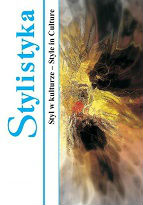W STRONĘ OPTYMALIZACJI SŁOWNIKOWEGO OBJAŚNIANIA ZNACZEŃ
Towards optimization of meaning descriptions in dictionaries
Author(s): Wojciech ChlebdaSubject(s): Language studies, Language and Literature Studies, Theoretical Linguistics, Lexis
Published by: Uniwersytet Opolski
Keywords: taxonomic definition; cognitive definition; contextual definition; synthetic definition; definition framework; explanatory dictionary
Summary/Abstract: In this paper, the author puts forward the following general hypotheses as a starting point for further enquiry: 1. Definitions and sets of definitions are developed on the basis of the results of exploration of linguistic reality and therefore they constitute meta-statements about certain fragments of linguistic reality; 2. Various types of definitions emphasize different aspects of linguistic reality and examine the reality from different perspectives; 3. Definitions and sets of definitions constitute cognitive tools used in any research endeavour; 4. Definitions and sets of definitions enable one to verify consistency across various scientific concepts. With this general background in mind, the author poses a specific question, namely whether it is possible to, first, synthesize various types of definitions and, second, to introduce such a synthetic definition into a new explanatory dictionary of the Polish language. The author argues that the proposed synthetic definition should be based on classical (taxonomic) definitions, cognitive definitions (used extensively by ethnolinguists), and contextual definitions. Also, the synthesis of three types of data, that is, systemic, textual and survey data, should provide a resource base for the development of the synthetic definition. The author argues that such a definition should be half-open, that is, it should include a set of features chosen by language users when performing particular speech acts. This way the synthetic definition is of dynamic character, which stands in stark contrast to static taxonomic definition. In short, this paper presents, first, a general framework for development of a synthetic definition, and, second, certain examples of definitions developed on the basis of the proposed framework.
Journal: Stylistyka
- Issue Year: 2016
- Issue No: XXV
- Page Range: 319-336
- Page Count: 18
- Language: Polish

